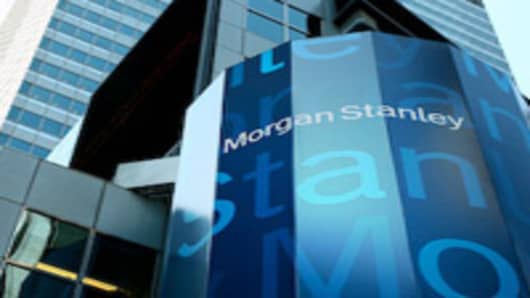Morgan Stanley is the latest firm to announce that it will not take advantage of a new Supreme Court ruling that allows companies to spend unlimited campaign cash in federal elections.
Morgan Stanley joins a handful of other companies that have decided to continue operating under the old rules, despite the new ruling.
The growing movement suggests that many companies aren’t willing to risk the political blowback that could come from dumping millions of dollars into campaigns, or don’t want to open themselves up to endless demands for cash from politicians—or both.
Already, Goldman Sachs and JPMorgan have said they, too, will not make direct campaign contributions.
In a letter to New York Public Advocate Bill De Blasio, Morgan Stanley’s Corporate Secretary Martin Cohen wrote that the firm “does not make or engage in direct independent political expenditures or electioneering communications as defined under federal election law and will be amending our Corporate Political Contributions Policy Statement to reflect this.” The letter was obtained by CNBC.
A spokesperson for Morgan Stanley confirmed the policy and told CNBC that it will extend to a ban on participating in so-called 501c(4) nonprofit organizations that have become vehicles for corporations to funnel anonymous contributions to federal candidates.
"I think it sends a powerful message to corporate America..."
De Blasio told CNBC that he’s pleased with Morgan Stanely’s decision. “I think it sends a powerful message to corporate America that some of the biggest and some of the most influential firms in this country are saying, ‘you know what, we don’t have to go down this road and a lot of the public and our shareholders don’t want us to and we’re standing apart.’”
De Blasio is a Democrat, and his concern about corporate funding mirrors fears in the wider national party that the new campaign finance rules could deal a crippling blow to Democratic candidates across the country, given that business has historically favored Republican candidates.
Morgan Stanley says it will continue to contribute political action committee funds, which were legal before the Supreme Court ruling. So far in this election year, the firm’s PAC has donated $255,500 to federal candidates, 48 percent to Democrats and 51 percent to Republicans, according to the Center for Responsive Politics. But those funds are subjected to certain caps, and pale in comparison to the unlimited funds the Supreme Court ruling would allow.
De Blasio, in his role as an elected public watchdog in New York, has been reaching out to select companies and asking them to publicly reveal what they will do in the wake of the Supreme Court ruling.
He said that companies could wield disproportionate influence in American elections if they take advantage of the new rules, and used Morgan Stanley as an example. “You take 1/1000th of the treasury funds held by Morgan Stanley … that would be roughly $175 million dollars,” De Blasio said. “They could literally put that money into a variety of house races, senate races, governor races all over the country.”
In January, the Court ruled 5-4 to strike down a provision of the McCain Feingold campaign finance law regarding issue advertising, holding that corporate funding of independent political broadcasts can’t be limited under the First Amendment. The case, “Citizens United v. FEC” involved advertising for a film critical of Hillary Clinton during her 2008 presidential campaign. Under the McCain-Feingold law, the film “Hillary: the Movie” was prohibited from being shown on television within 30 days of the Democratic primary.
- Slideshow: 2010 Midterm Races to Watch
- Larry Kudlow's 'Money & Politics' Blog



